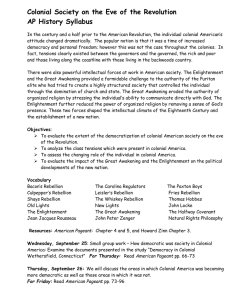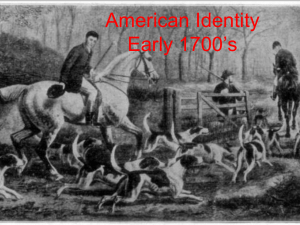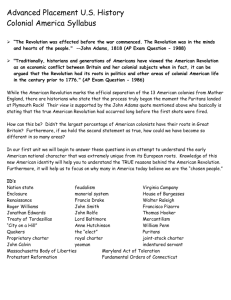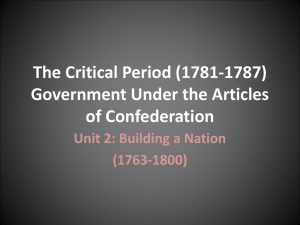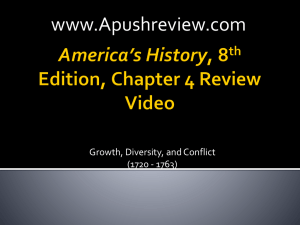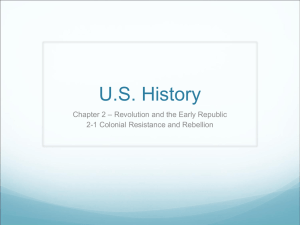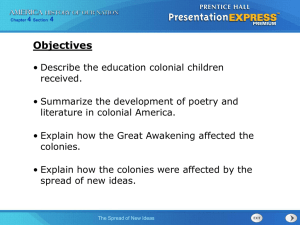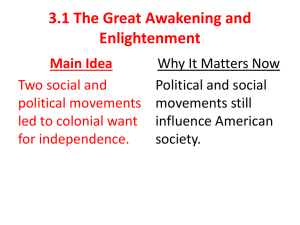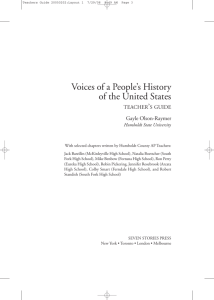Colonial Society on the Eve of the Revolution
advertisement
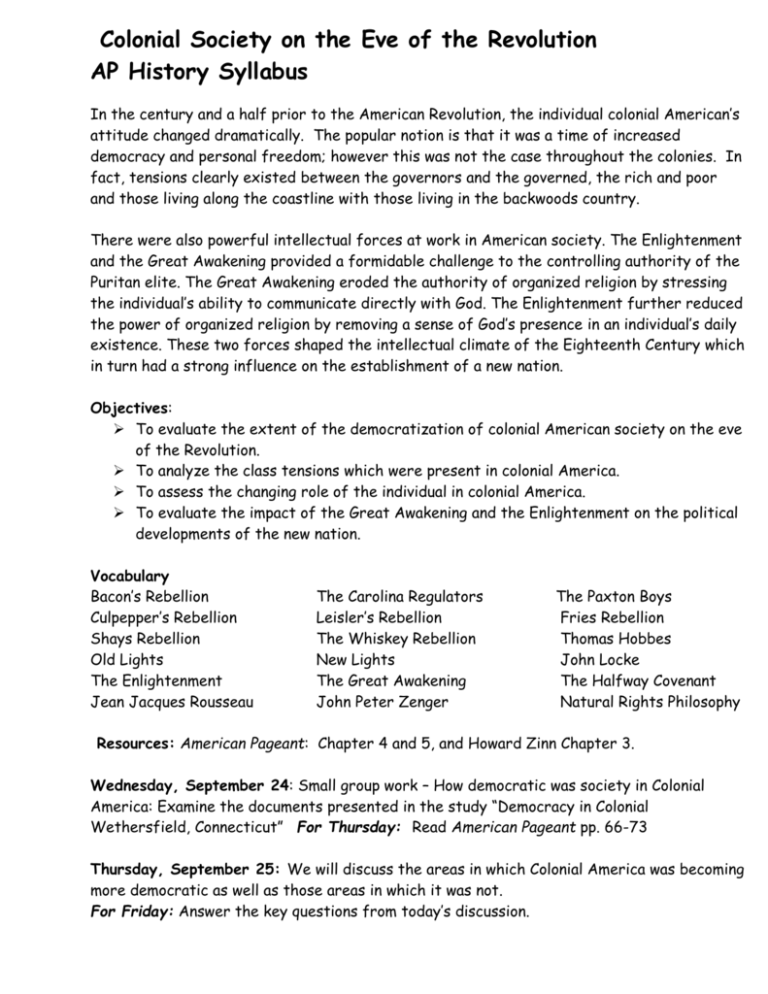
Colonial Society on the Eve of the Revolution AP History Syllabus In the century and a half prior to the American Revolution, the individual colonial American’s attitude changed dramatically. The popular notion is that it was a time of increased democracy and personal freedom; however this was not the case throughout the colonies. In fact, tensions clearly existed between the governors and the governed, the rich and poor and those living along the coastline with those living in the backwoods country. There were also powerful intellectual forces at work in American society. The Enlightenment and the Great Awakening provided a formidable challenge to the controlling authority of the Puritan elite. The Great Awakening eroded the authority of organized religion by stressing the individual’s ability to communicate directly with God. The Enlightenment further reduced the power of organized religion by removing a sense of God’s presence in an individual’s daily existence. These two forces shaped the intellectual climate of the Eighteenth Century which in turn had a strong influence on the establishment of a new nation. Objectives: To evaluate the extent of the democratization of colonial American society on the eve of the Revolution. To analyze the class tensions which were present in colonial America. To assess the changing role of the individual in colonial America. To evaluate the impact of the Great Awakening and the Enlightenment on the political developments of the new nation. Vocabulary Bacon’s Rebellion Culpepper’s Rebellion Shays Rebellion Old Lights The Enlightenment Jean Jacques Rousseau The Carolina Regulators Leisler’s Rebellion The Whiskey Rebellion New Lights The Great Awakening John Peter Zenger The Paxton Boys Fries Rebellion Thomas Hobbes John Locke The Halfway Covenant Natural Rights Philosophy Resources: American Pageant: Chapter 4 and 5, and Howard Zinn Chapter 3. Wednesday, September 24: Small group work – How democratic was society in Colonial America: Examine the documents presented in the study “Democracy in Colonial Wethersfield, Connecticut” For Thursday: Read American Pageant pp. 66-73 Thursday, September 25: We will discuss the areas in which Colonial America was becoming more democratic as well as those areas in which it was not. For Friday: Answer the key questions from today’s discussion. Friday September 26: We will define the idea of mercantilism which was the guiding principle for England at this time. We will then examine how this affected the relationship between the colonists and Mother England. For Monday: Read Howard Zinn: chapter 3 and answer the questions on the handout. Monday, Tuesday, September 29, 30: Go over the answers from the Zinn reading. We will work on analyzing the evidence of class strife in British Colonial North America. We will also identify the impact that the Glorious Revolution had upon the British colonies. For Tuesday: Read American Pageant pp. 73-96 For Wednesday: Read American Pageant pp. 96-105. For Monday, October 6: East West Conflict writing due. Wednesday, Friday October 1, 3: What Significant impact did the Great Awakening and Enlightenment have on colonial-American society in the 18th century? How did this influence American thoughts and actions? For Thursday: Study for Quiz. This quiz will ONLY be on chapters 4 and 5 in the text book. It will not include anything from our class discussions. Thursday, October 2: Pageant Quiz on Chapters 4 and 5. After the quiz, we will continue our discussion of the intellectual movements of this age. Friday, Monday, October 3, 6: Analysis of the Declaration of Independence For Monday: In what sense is the Declaration of Independence a product of Enlightened thought? Tuesday, October, 7: Review Wednesday, October 8: Test
